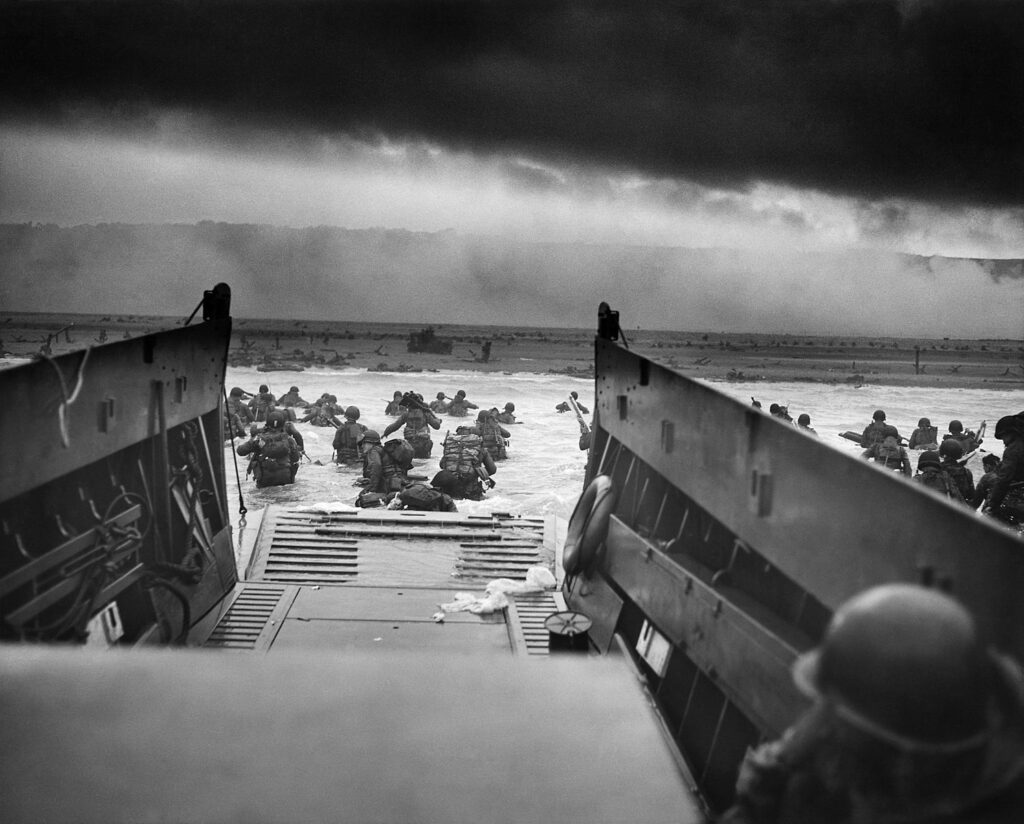7th June 2021
by Tom Knight (guest contributor)

On the 6th June 1944, Operation Neptune took place. This in turn began Operation Overlord, which ran from June 6th to August 30th. We may never know precisely how many people died, but the official estimate is around 425,000.
Estimates for the total number of dead in World War 2 are around 75 million people, or approximately 3 percent of humanity.
This reality is not what people tend to focus on when they discuss “D Day” and the triumph of the Allied forces over the Axis powers.
It is indisputable that the defeat of Nazi Germany and its allies was necessary. The horrors perpetuated by the eugenicist regime were abhorrent. By the time Hitler had risen to power, it was too late to avert that catastrophe.
However, it is impossible to look at the material reality of the second World War and not see the massive loss of life. The trauma and bloodshed which was inflicted upon the working people of the world has defined much of our culture in the following decades. The cost of defeating Fascism was born, as it always is, by the people who were forced to take up arms, bleed and die in defence of their nation.
What is most disturbing about this period of history is that it has become inextricably linked in the popular consciousness with the glory and supremacy of our military forces. People talk of the sacrifice that our soldiers made, of the nobility of laying down one’s life for one’s country. All too often this period is portrayed as a struggle between Churchill and Hitler, as though those two men fought alone.
But it was not the leaders – or even the soldiers – who suffered the most in World War 2. The Nazis inflicted unthinkable carnage upon the civilian populations they occupied, most famously but not exclusively in the death camps. The Allies firebombed German cities and deployed nuclear weapons against a civilian population long after it had become obvious that surrender was inevitable, amongst other war crimes.
We should not forget that the majority of deaths in World War 2 were of people who never picked up a gun.
Even for those who did choose to join the army and fight, we should not cast this as some act of willing martyrdom. This was instead, as it always is, a failure of our politics and social structures to protect the people who they are supposed to serve.
The Nazis should never have risen to power. The death camps should never have existed. We should never have thought it somehow rational to commit atrocities in the name of peace.
When we look back on this period of history we must do so with clear eyes, not venerating the deaths of millions who should have been able to live their lives in peace, but mourning the loss of the world we should have created. The history of World War 2 is not one of great heroes struggling against cartoonish villains – it was a terrible moment where millions across the world joined forces to kill one another in the name of their respective elites.
It should send a shiver down our spine that the Nazis were ever in a position where they required so much death to be defeated.
We should not celebrate that many millions were slain and with it the Nazis were stopped. We must, instead, mourn the 3 in every 100 souls lost to the cataclysmic conflict of that period.
And we must look with suspicion at those who would have us celebrate that nightmare as a great moment for our nation, because if we don’t see all war as a tragic failure, how many millions more will continue to die in wars that we deem good and right?
